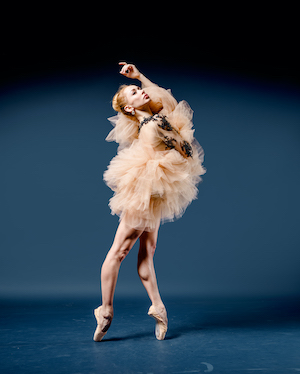On Tuesday, January 22, 2019, the remnants of a heavy snowfall and blistering temperatures saw Chicago’s population fearing weather reports promising dangerous ice that could make any movement outdoors a potential bone-cracking disaster. The elements were not kind to the National Ballet Theatre of Odessa, which made its Chicago premiere that evening to an audience about half the size that the Harris Theater for Music and Dance can normally seat.
The lukewarm reception may have been due to the weather – presenting in the winter in Chicago is always a risk – but it was possibly also due to the fact that National Ballet Theatre of Odessa is an obscure name in these parts, not carrying the clout of other international companies, such as the Cuban National Ballet or the English National Ballet, the latter of which is slated to perform at the Harris Theater in February. Plus, the choice to perform Swan Lake wasn’t doing them any favors either, as local company The Joffrey Ballet presented Christopher Wheeldon’s version this past October.
What was a little more unusual about Odessa’s presentation – for better or worse – is that they decided to honor the most classical of ballet traditions by performing Petipa and Ivanov’s Swan Lake. With so many big names putting their own spin on the classics – it’s Akram Khan’s Giselle that the English National Ballet brings next month – it’s been a while since I and many others have seen one of the actual classics.

As the production begins, one is instantly struck by the most passé elements of ballet. The heavy painted sets, the glaringly bright white tights and velvet gold embroidered tops, the seemingly endless succession of brief choreographies that cushion the ballet’s three primary sections, prolonging the storyline rather than helping it progress. It’s a revered format and critical to ballet history, but one that has become so familiar that it does little to stoke enthusiasm from a contemporary audience.
Still, for the National Ballet Theatre of Odessa, it is worth looking past the all too well-known choreography and cliched staging – that could in all honesty benefit from even the slightest update in look – and focusing on the seamless execution of most of the solo variations. The corps is tight and well-rehearsed, but the soloists are perfection. Dancers Pavlo Gryts, as the court jester, and Andrey Pisarev, as the magician Von Rothbart perform their intensely difficult and energic solos as though they are second nature.

But even the magnificent precision and semblant ease with which Gryts and Pisarev perform is overshadowed by the grandeur of “Prima Ballerina and Honored Artist of the Ukraine” Elena Dobryanskaya, whose Odette was the production’s crowning achievement. Her white swan pas de duex would have wowed even Petipa; a stunning example of how such a physically demanding choreographic work can be performed with extreme fragility. The necessary rigidity of Dobryanskaya’s torso and legs is turned delicate with the gentle lean of her neck and the graceful flutter of her arms.
In a small yet very personal and performance defining movement, Dobryanskaya seems to gently stroke the cheek she turns demurely from Prince Siegfried – performed by Sergey Dotsenko – with her outstretched arms. It’s a mere detail in an already ornate choreography, but it subtly reminds us that she is a swan nestling her face beneath a soft feathered wing, an intimate act in a moment of blissful intimacy.
The quality of its principal dancers serves as an excellent calling card for the company’s first U.S. tour, which continues into February 2019 with performances of Swan Lake and Petipa’s Sleeping Beauty in New York, New Jersey, Connecticut, Maryland and Vermont.
Reviewed on 22nd of January 22 at the Harris Theater for Music and Dance by Justine Bayod Espoz


